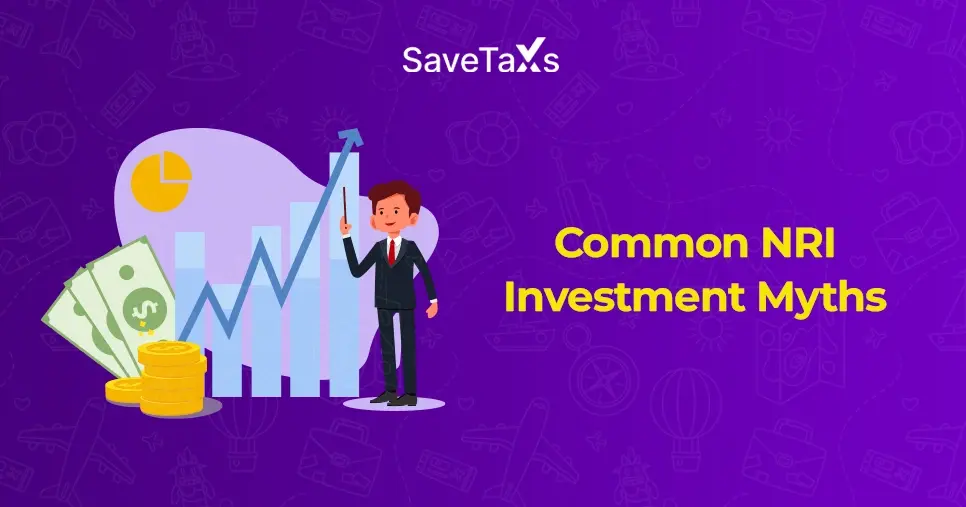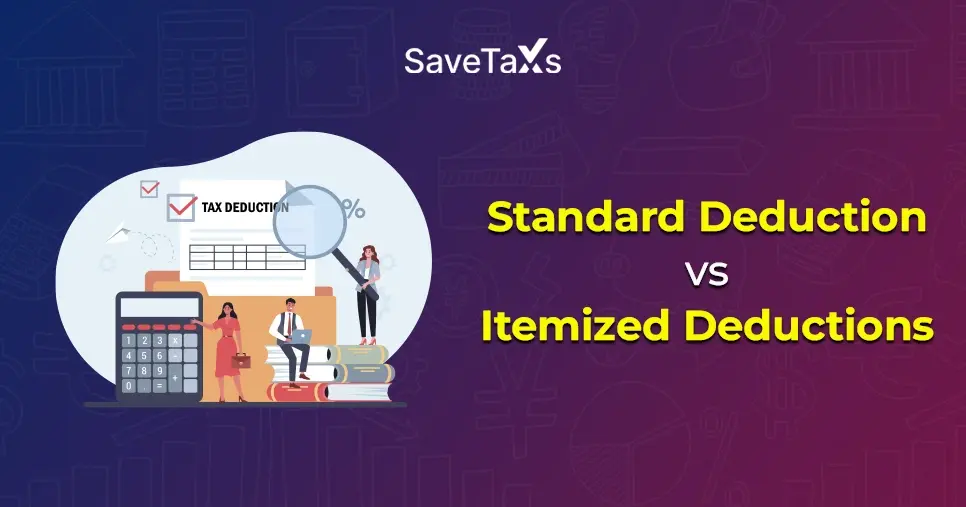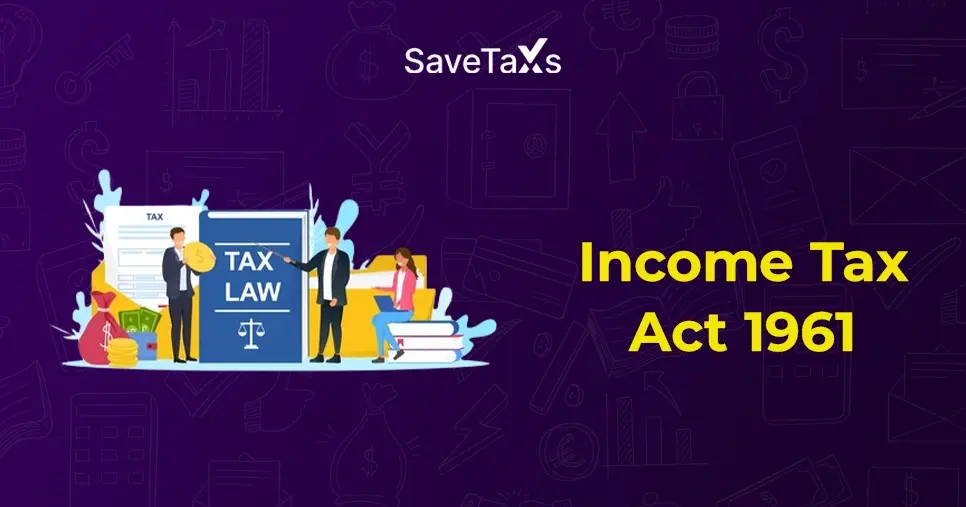A Non-Resident Indian (NRI) must convert their resident savings account to an NRO (Non-Resident Ordinary) account because the FEMA (Foreign Exchange Management Act) prohibits NRIs from holding a regular resident savings account in India.
If you continue to operate a resident savings account even after moving abroad, you will attract penalties. Converting to an NRO account will prevent you from facing legal issues and keep your financial activities in India safe. In this blog, we will learn every aspect of why an NRI should convert their resident savings account to an NRO account.
- The FEMA prohibits an NRI from holding a regular resident savings account in India; hence, they must convert it into an NRO account.
- Continuing to hold a resident savings account even after moving abroad will lead to penalties, frozen accounts, issues with tax authorities, and other legal complications.
- An NRI can legally manage their Indian income, repatriate up to 1 million USD annually, enjoy smooth banking, and have accurate TDS deductions with an NRO account.
- An NRO account can be opened jointly with an Indian resident or even an NRI.
- The remaining balance in the resident savings accounts will be moved automatically to your NRO account.
What is an NRO Account?
An NRO (Non-Resident Ordinary) account is a type of bank account that permits NRIs (Non-Resident Indians), PIOs (Persons of Indian Origin), and OCI (Overseas Citizen of India) to manage the income earned in India. It is a rupee-denominated account that includes various income, like rent, dividends, pensions, and other domestic earnings.
An NRI can make deposits in these accounts in both foreign and Indian currency. However, withdrawals can be made only in Indian Rupees. The interest earned on an NRO account is taxable in India and subject to TDS. Nevertheless, relief can be availed under the DTAA tax treaty. You can open an NRO account jointly with an Indian resident or even an NRI.
Why Convert Your Savings Account to an NRO Account?
Under the regulations of FEMA, an NRI is not permitted to hold a regular resident savings account. You must convert your resident savings account to an NRO account as soon as your residential status changes to an NRI.
If you continue to use your resident savings account after becoming an NRI, you may:
- Face penalties from RBI.
- Have your account frozen
- Face issues with the tax authorities
- Compliance issues with both the bank and the RBI
An NRO account will ensure that you legally manage your Indian income while staying compliant with Indian tax laws. Additionally, it will provide you with the ability to transfer up to 1 million USD annually, enjoy smooth banking operations, and have accurate TDS (Tax Deducted at Source) deductions.
You can prevent yourself from facing any legal complications by converting your resident savings account to an NRO account.
Stay compliant with Indian tax laws as an NRI while optimizing your tax benefits with the help of Savetaxs.
When Should You Convert to an NRO Account?
You must convert your resident savings account to an NRO account when:
- You leave India for employment.
- You are moving abroad for a long-term stay.
- You get the NRI status under FEMA (stay outside India for more than 182 days).
How to Convert Your Resident Savings Account to an NRO Account?
To convert your resident savings account to an NRO account, follow the steps mentioned below:
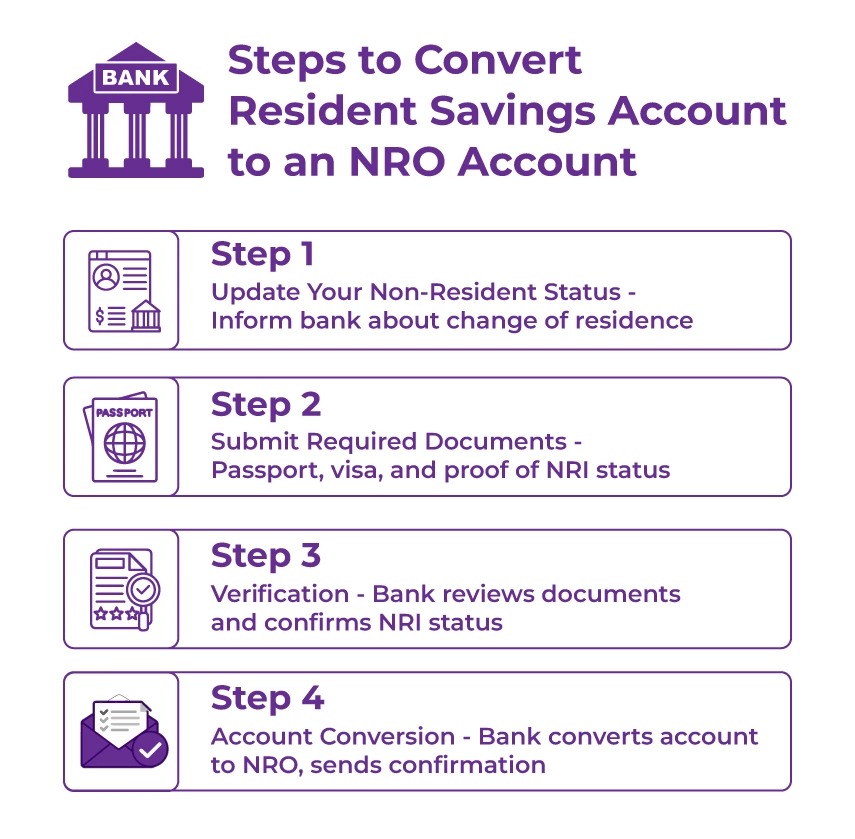
- Step 1: Update Your Non-Resident Status
Firstly, you need to notify your bank regarding your NRI status either by using an online application or by visiting a bank in person. Updating your residential status with the bank is an essential part to start the conversion process.
- Step 2: Submit the Required Documents
You need to gather and submit some documents to your bank, which include:
- Copy of passport
- Valid visa or work permit
- Proof of your overseas residence
- If applicable, OCI (Overseas Citizen of India) card, or PIO (Person of Indian Origin) card,
- Step 3: Verification
Upon submitting the documents, the bank will conduct a due diligence process to ensure that everything complies with the Indian banking regulations.
- Step 4: Account Conversion
Once the compliance check is done, your savings account will be converted to an NRO account. You will receive new banking details, like a new account number, debit card, and checkbook.
What Happens to the Exisitng Balances in the Resident Savings Account?
The existing balance in your resident savings account will be moved to your NRO account automatically. There are no restrictions, and you can keep using the account normally for:
- Making UPI payments
- Online transfers
- Using a debit card
- Withdrawing an amount from the ATM
At Savetaxs, we provide comprehensive tax services to help NRIs and businesses.
To Conclude
An NRI must convert their residential savings account to an NRO account to stay compliant with Indian regulations. Conversion to an NRO account allows an NRI to legally manage their Indian income. Operating a regular savings account as an NRI can attract legal and financial complications. The NRO repatriation limit is 1 million USD annually.
Moreover, if you still have any confusion regarding account conversion, contact the experts at Savetaxs. We are a team of professionals who can assist you with everything you need to know when changing your residential status to NRI. They will help you stay compliant with the tax laws by using the right approach. Contact us right away, and experience expertise at your fingertips.
Note: This guide is for informational purposes only. The views expressed in this guide are personal and do not constitute the views of Savetaxs. Savetaxs or the author will not be responsible for any direct or indirect loss incurred by the reader for taking any decision based on the information or the contents. It is advisable to consult either a CA, CS, CPA, or a professional tax expert from the Savetaxs team, as they are familiar with the current regulations and help you make accurate decisions and maintain accuracy throughout the whole process.

Mr Shaw brings 8 years of experience in auditing and taxation. He has a deep understanding of disciplinary regulations and delivers comprehensive auditing services to businesses and individuals. From financial auditing to tax planning, risk assessment, and financial reporting. Mr Shaw's expertise is impeccable.
- PoA For NRIs To Manage Indian Banking Needs
- A Guide to NRO (Non-Resident Ordinary) Accounts
- Everything You Need to Know About UPI for NRI
- Everything You Need to Know About FCNR (B) Account
- NEFT, RTGS, IMPS and UPI to Transfer Funds From NRO to NRE Account
- NRE & NRO Accounts - Meaning, Comparison, Benefits, Taxation
- How To Transfer Money From NRO Account to NRE Account
- When Does an NRIs NRE Account Lose Tax-Free Status in India?
- Top 5 NRI Banks for NRE account in India for 2025
Want to read more? Explore Blogs
Frequently Asked Questions
No matter what your source of income is, we've got you covered. There’s a plan for everybody!
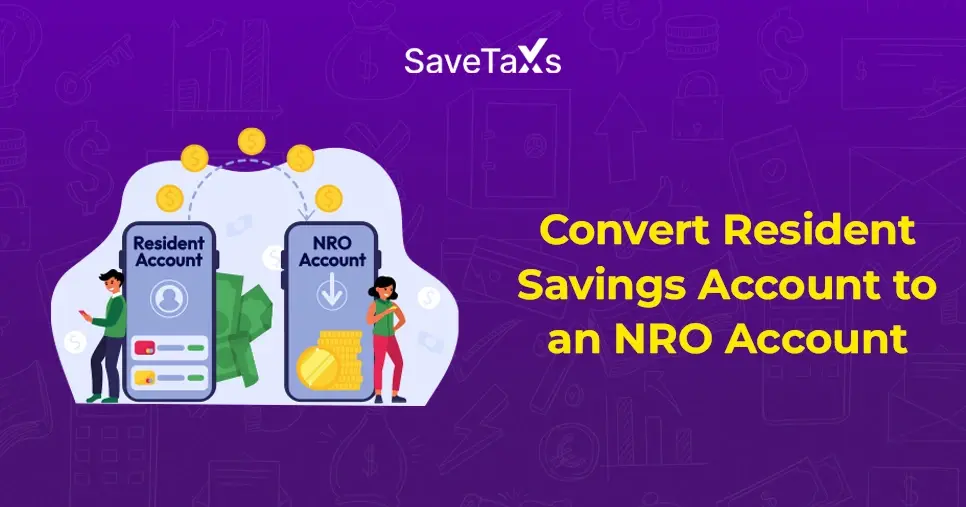


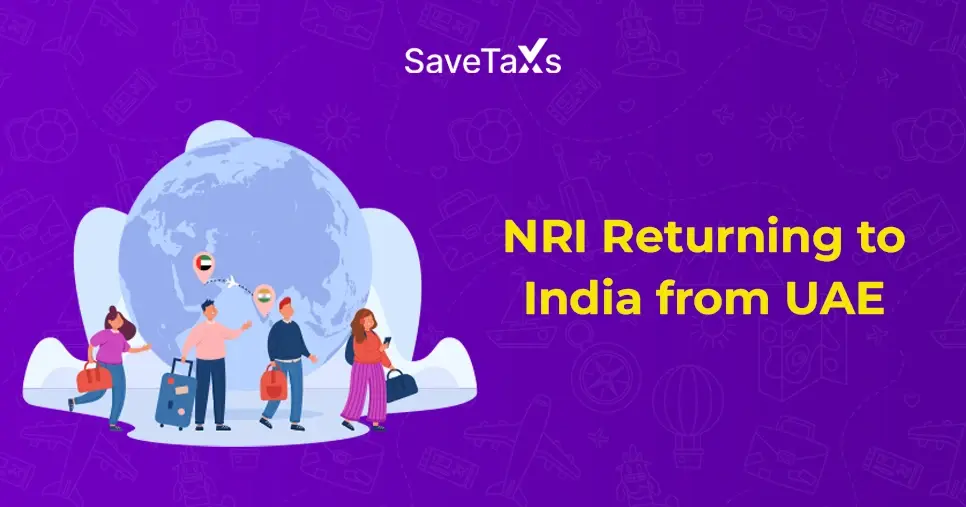
_1767099354.png)
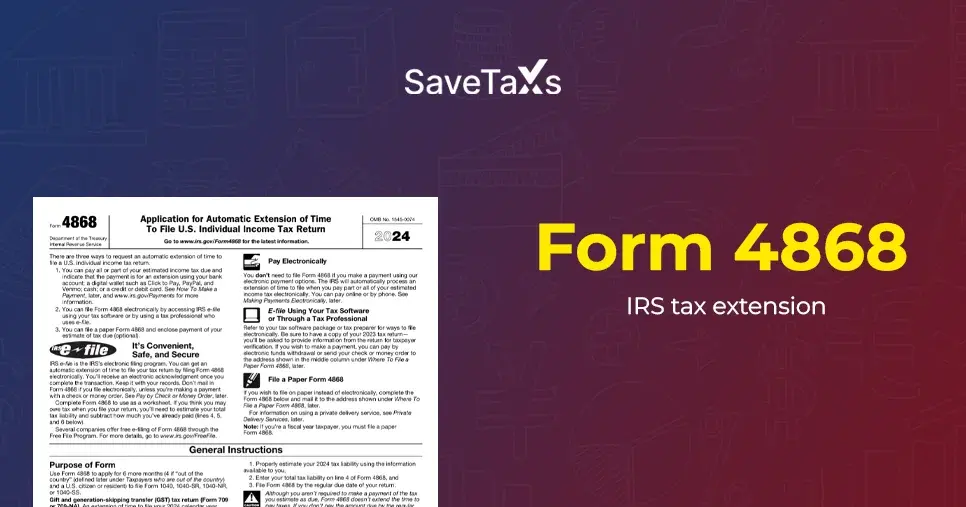

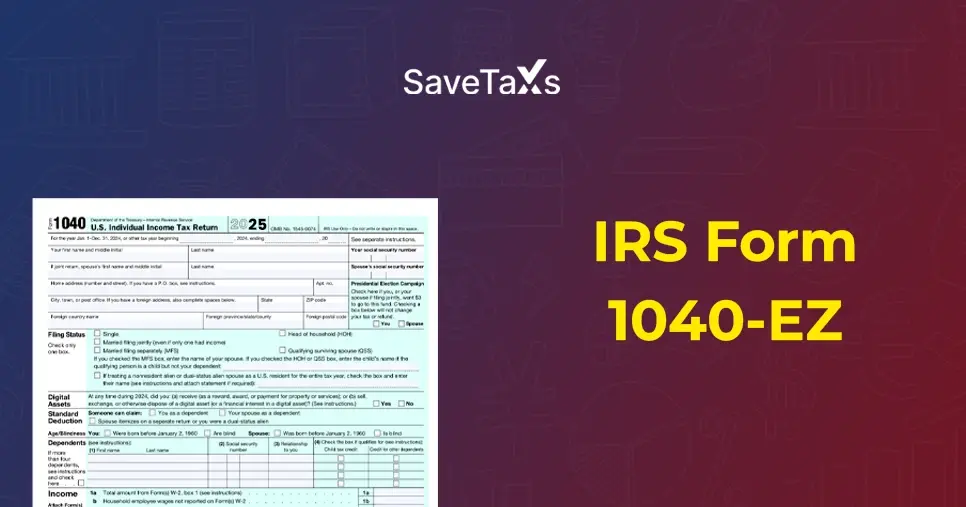
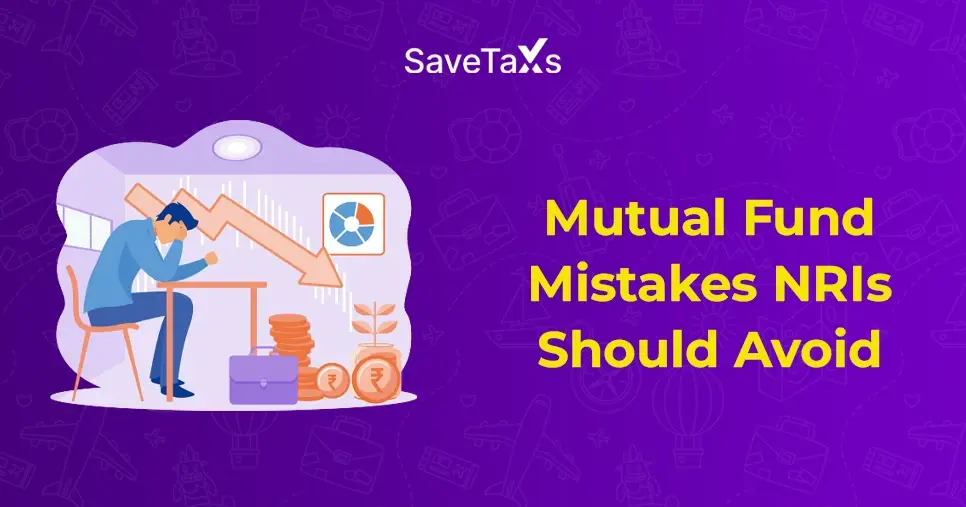
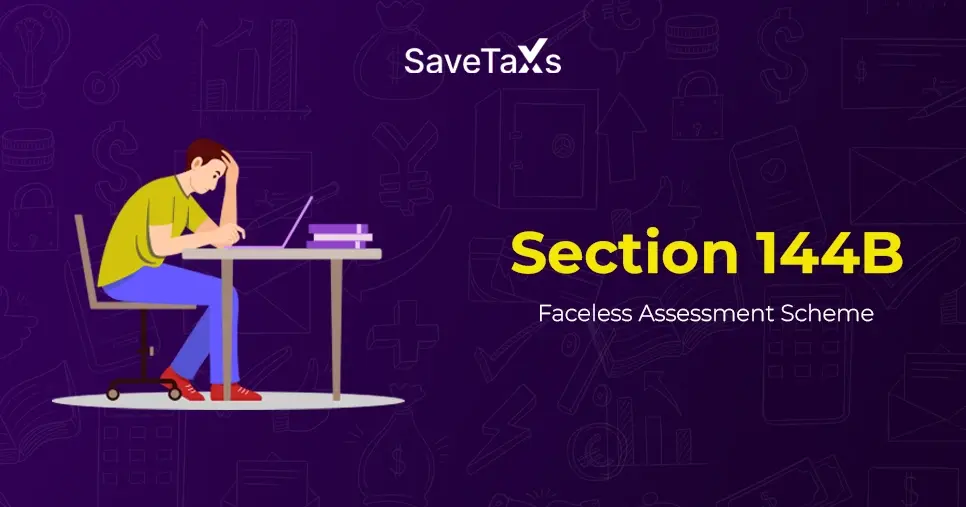

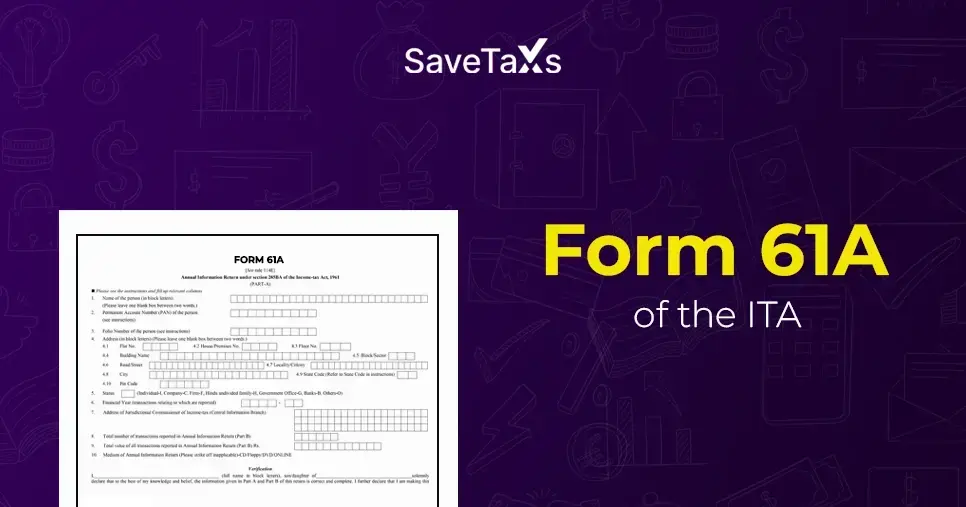

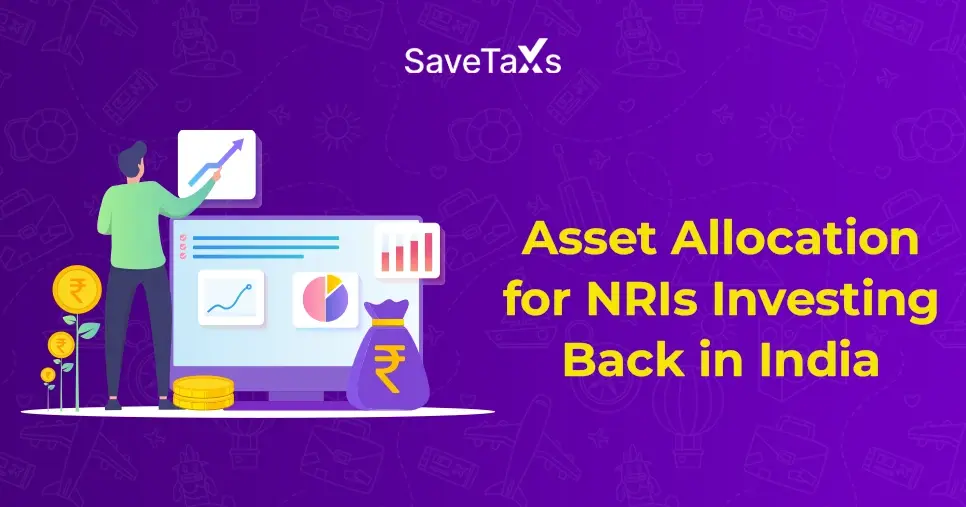
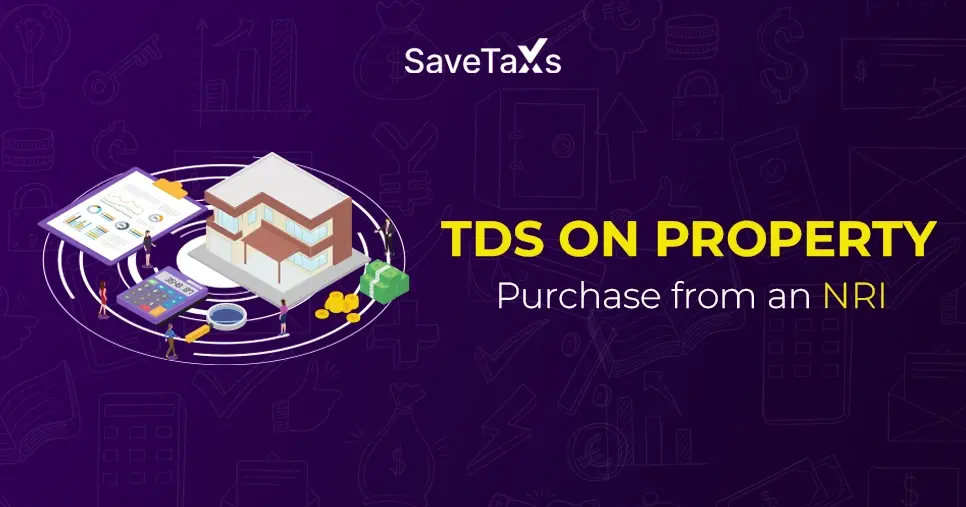
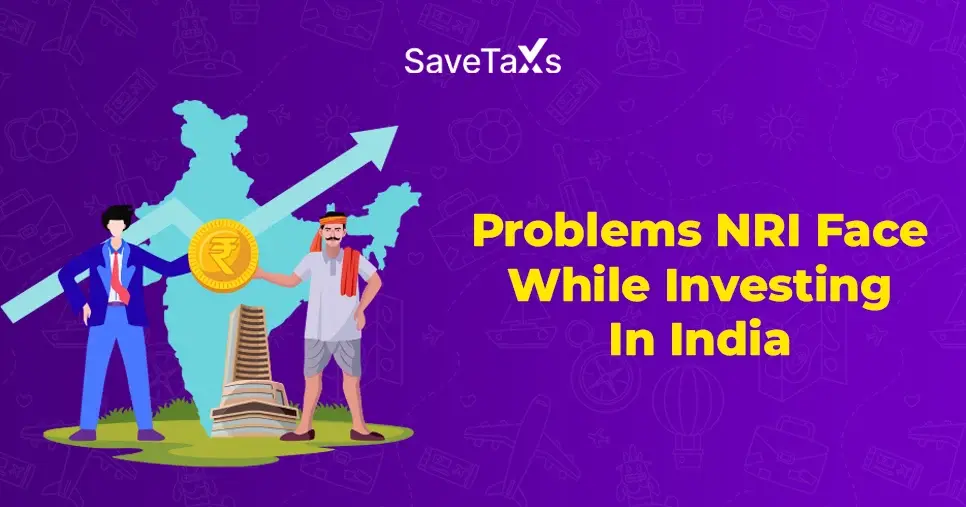
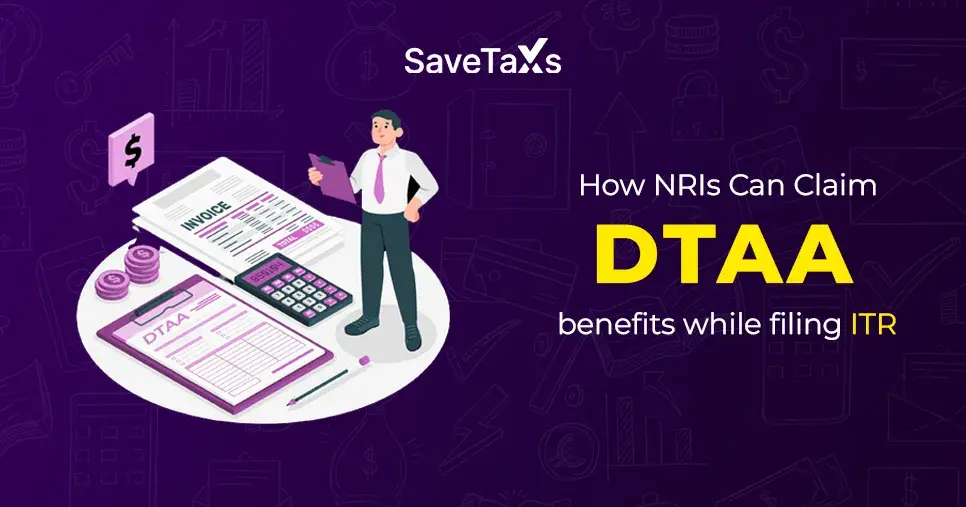
_1752921287.webp)
